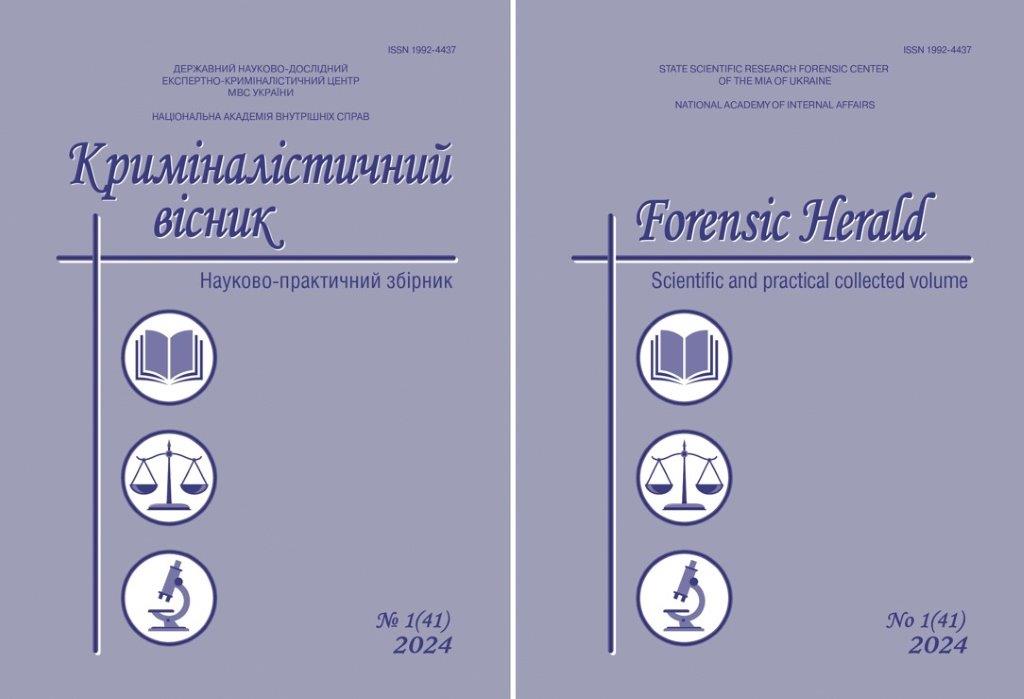SEMANTIC-TEXTUAL EXPERTISE AS ONE OF THE FORMS OF USING SPECIAL KNOWLEDGE FOR THE QUALIFICATION OF CRIMINAL OFFENSES COMMITTED VERBALLY. SITUATION CONTEXT AND SPEAKER’S INTENTION
DOI:
https://doi.org/10.37025/1992-4437/2024-41-1-76Keywords:
forensic linguistic examination, forensic semantic and textual examination, expertise, criminal intent, speaker’s intention, situational context, criminal offenses committed verballyAbstract
The scientific article examines certain aspects of the application of the possibilities of semantic-textual
examination as one of the forms of using special knowledge for the qualification of criminal offenses committed
verbally, the influence of the situational context on the examination results is investigated. The methodological
basis of the work was the use of both general scientific and special methods of scientific knowledge, in particular:
generalization, analysis and synthesis – to develop reliable conclusions as a result of processing a set of scientific and
empirical sources on the chosen topic. The scientific novelty of the study consists in substantiating the importance
of analyzing the impact of the situational context of the speech situation on the conclusion of the semantic-textual
examination, determining the ratio of the speaker’s intention and the intent of a criminal offense committed verbally.
In addition, the main characteristics of the speech act from the standpoint of pragmatics are given; the essence of the
situational context of communication and its significance in conducting a semantic-textual examination of speech is
revealed; the connection between the intention of the speaker and the intent of a criminal offense committed verbally
is proven. The results of linguistic examination are illustrated by an example from expert practice, which highlights
the peculiarities of semantic and textual examination in the investigation of criminal offenses committed verbally. The
practical significance of this scientific work is determined by the nature of the research and has a methodological focus.
The expressed proposals can be used when drawing up conclusions based on the results of the linguistic examination.



